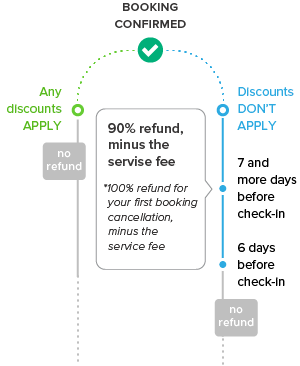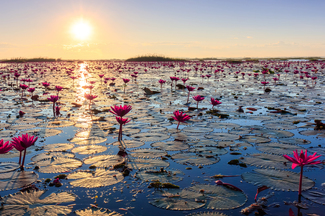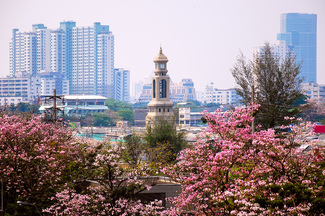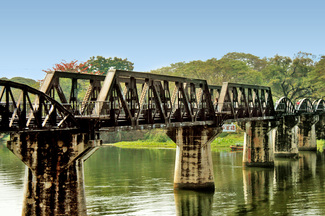PHUKET’S ELEPHANT SANCTUARIES – GETTING UP CLOSE ETHICALLY
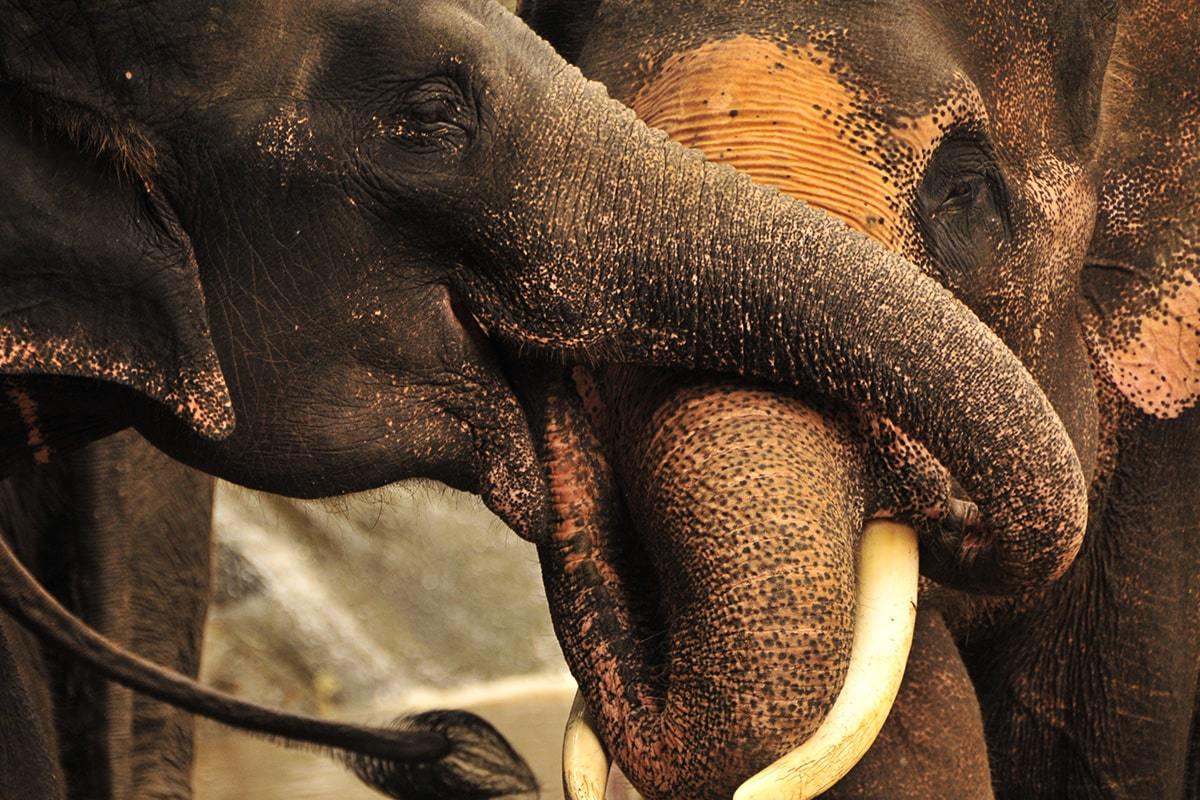
Human- elephant Interaction
The relationship between elephants and humans in Thailand has a long history, much of it a lamentable tale of exploitation and cruelty, but today the pressure to change age-old practices is gaining ground and the concept of ethical behaviour towards elephants, and indeed all animals, is taking root, though there remain a great many animals still being used in the tourist trade as beasts of burden or as entertainers for human amusement.
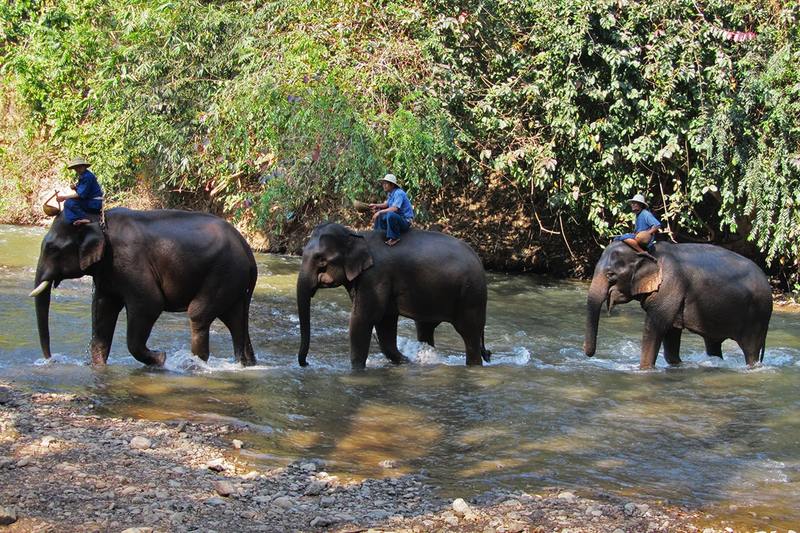
Elephants broken for a life of servitude
Phajaan– Breaking the Spirit
The Asian elephant is a large animal - weighing anywhere between 3,000 to 6,000 kilogrammes - and it knows it. It will not naturally submit to control by humans, so in Thailand a method of taming, known as phajaan, the ‘crushing’ of the spirit, was devised which involves taking the infant elephant while still nursing away from its mother and confining it in a small bamboo cage just large enough to fit its body and then subjecting it to a series of beatings and deprivations to render it compliant to human control. The elephant will not see its mother again.
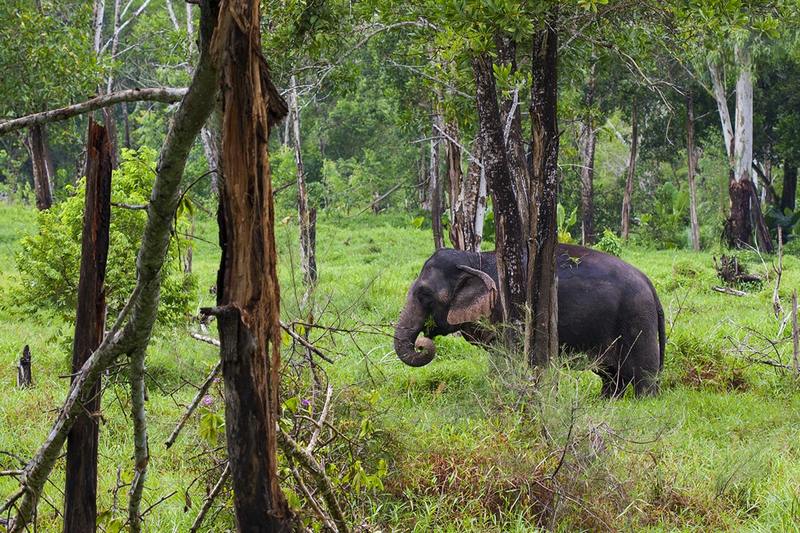
Deforestation and elephant exploitation go hand in hand
An Illicit Smuggling Trade
There is a lucrative, elicit cross-border smuggling trade that supplies tourist camps with baby elephants. The poachers anaesthetise the young elephants and shoot the adults and with the compliance of corrupt officials the animals are registered as the offspring of captive Mother elephants. So, before you decide to take a ride on an elephant in Thailand or watch one of the many performing elephant shows think about the horrific torture and cruelty that makes it all possible.
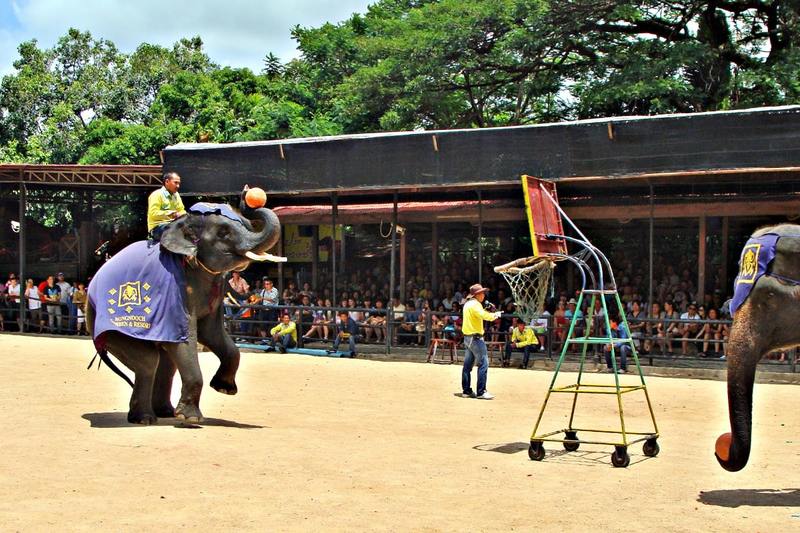
The degrading spectacle that makes the tourists smile
Phuket’s Ethical Elephant Sanctuaries
There is, however, an acceptable alternative to the exploitative performing elephant camps or shows and elephant rides. In Phuket there are a number of excellent, ethically run sanctuaries, where former working elephants, either from the logging industry or the tourist trade, are given some semblance of a life they once enjoyed in the wild and tourists can now interact with these gentle giants in a minimally intrusive way for a great fun day out.
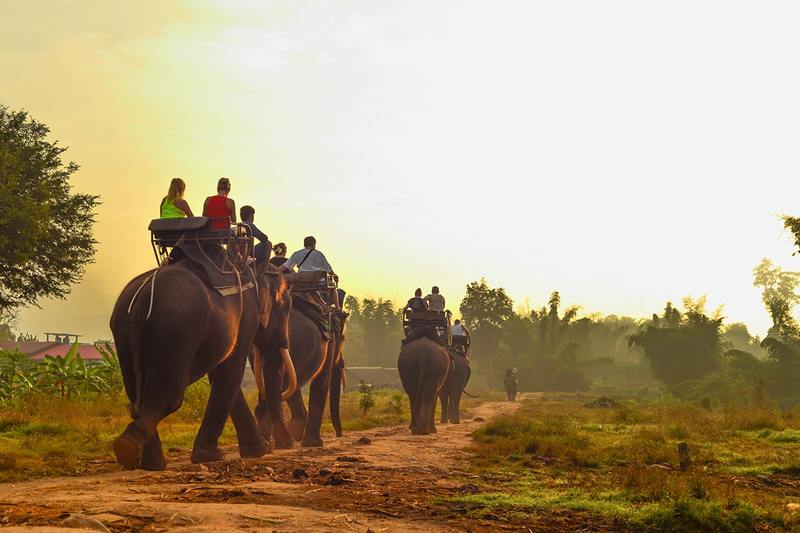
Howdahs inflict injuries on animals not designed to carry loads on their backs
Phuket Elephant Sanctuary
If you’re looking forward to taking mud baths with elephants and riding them as part of your day out, Phuket Elephant Sanctuary is not the place to go. This camp is primarily, as its name suggests, a sanctuary, where the welfare and wellbeing of the elephants is the absolute priority.
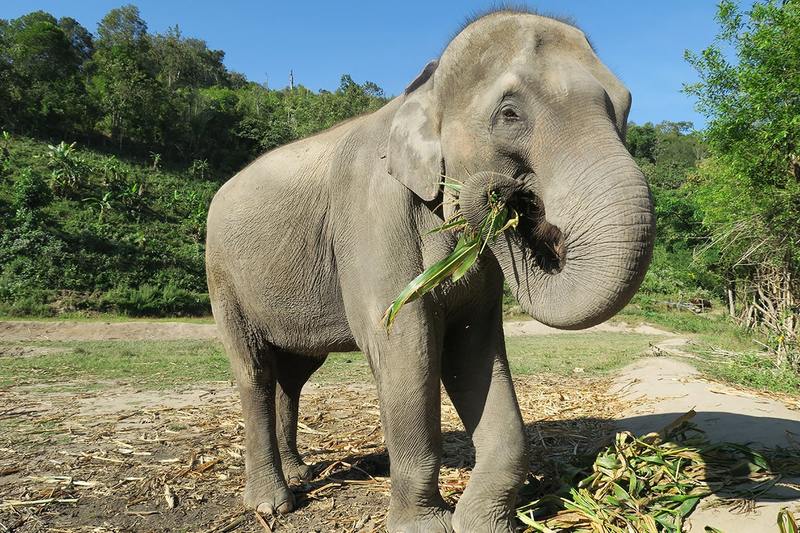
Free to roam
Back to the Wild
You do though have the opportunity to walk around with these magnificent animals and observe how they interact with one another. These elephants now enjoy a lifestyle approaching that which they would have lived as wild animals, but, because they have become acculturated to living and working with humans, they might be more properly considered retirees or perhaps liberated prisoners.
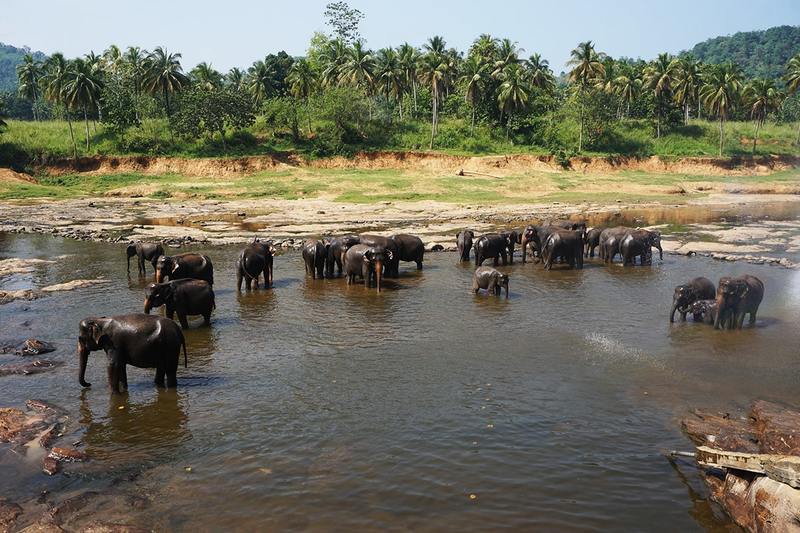
Bath time
Jungle Haven
The sanctuary, not far from Phuket Town, in Paklok, offers morning and afternoon sessions which begin with a scenic drive through a village before arriving at the 30-acre camp, a jungle with large pools of water and plenty of wide-open spaces and hilly areas for the elephants to explore. After an introductory talk and video presentation at the Tree Top Reception and Observation Platform, outlining the sanctuary’s ethos, you get to feed the animals while their handers tell you each animal’s personal history.
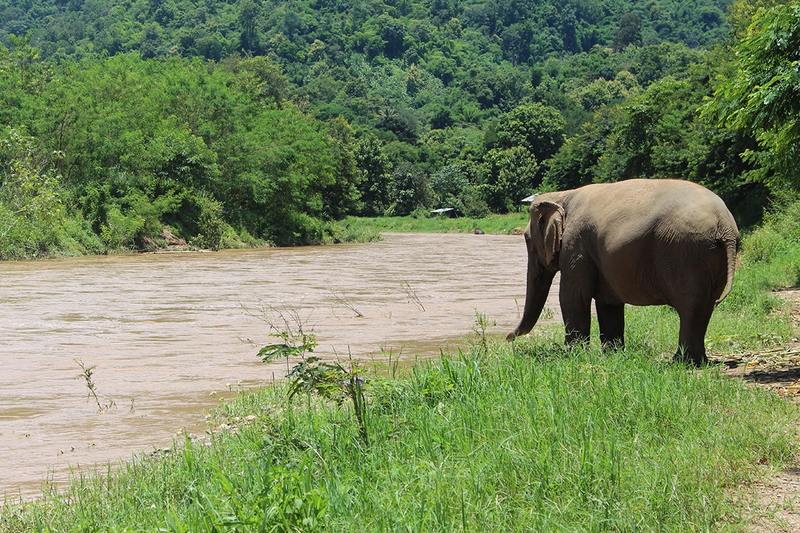
A veritable paradise for pachyderms
Walking with Giant Vegans
Once the elephants have been fed they are walked into the jungle at which time you may accompany them at a safe distance or watch from observation posts. Here you can observe these highly intelligent giants doing just as they please, bathing, playing and socialising in a way that was denied them for years. Elephants of course are strict vegans and as part of the package a vegetarian-vegan buffet rounds of your visit.
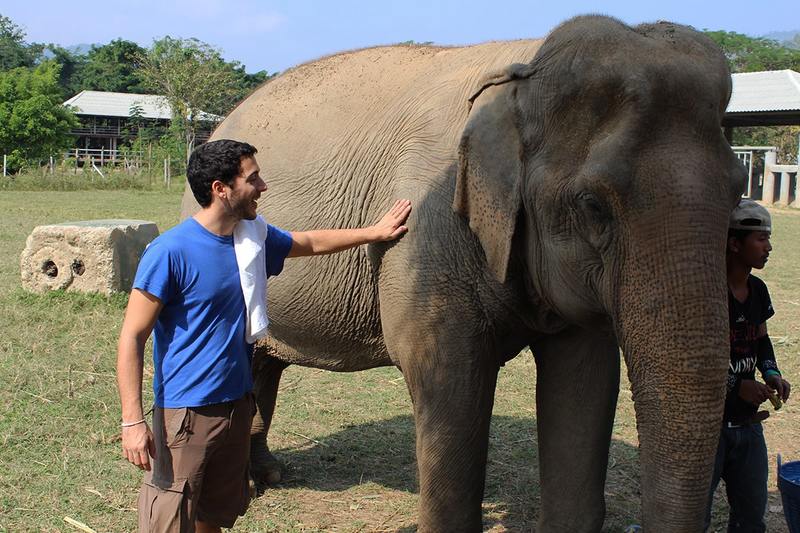
Practise your elephant-management skills as a volunteer
Volunteer Programme
If you want an experience that lasts longer than a morning or afternoon, the sanctuary runs a one-week volunteer programme, with full accommodation and three vegetarian-vegan meals a day provided, all of which costs 18,000 Baht. During your stay you’ll be able to immerse yourself in the life of these elephants by helping out with daily tasks and essential maintenance of the infrastructure.
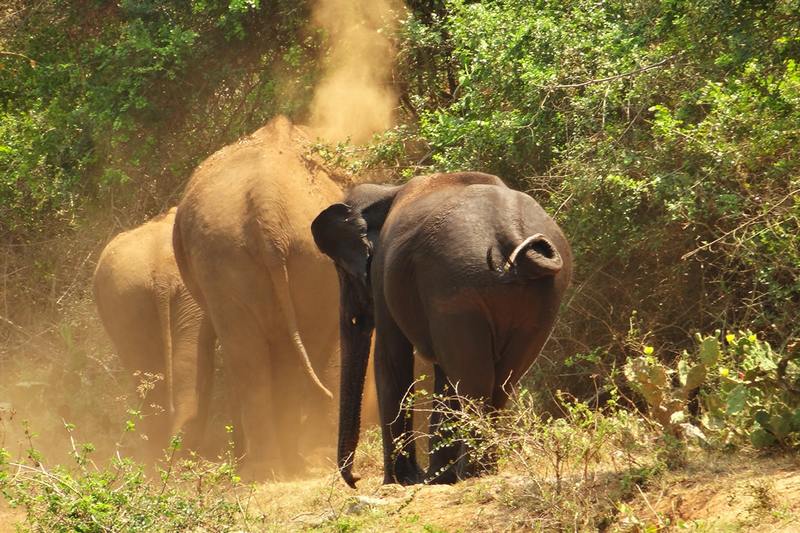
Hanging out at Green Elephant Sanctuary Park
Green Elephant Sanctuary Park
Green Elephant Sanctuary Park was created by two Swiss nationals, Urs Fehr and Nathanael Schärer, the culmination of a long-term dream of helping improve the lives of elephants in Thailand, run according toEuropean animal protection laws. It is located not far from Surin Beach in a large jungle area and tries to recreate as much as possible their natural habitat, even taking into account elephants nocturnal habits. It runs morning and afternoon sessions. The sanctuary also has a clinic with plans to introduce a mobile clinic in the future.
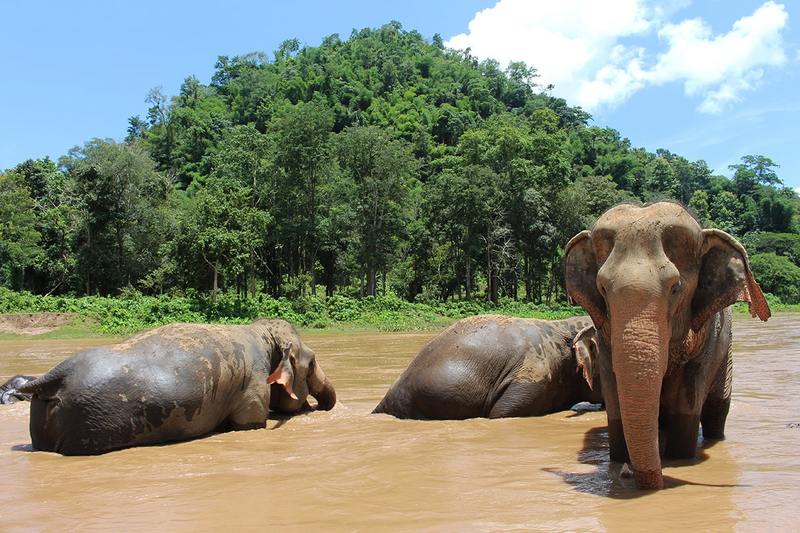
Mud, mud, glorious mud, nothing quite like it for cooling the blood…
Get Down and Dirty
Green Elephant Sanctuary Park does allow visitors to bathe the elephants so make sure to bring a change of clothes. After feeding the elephants you can get down and dirty in the Mus Spa Pool, followed by a bath in the fresh water pool and then more fun and frolics under the XXL adventure shower. After showering yourself and a change of clothes you can then enjoy a delicious Thai Buffet before bidding farewell to these gentle giants.
Special Events
The sanctuary also offers a number of other special tours and programmes such as Honeymoon, marriage photoshoots, team building and VIP programmes. During the morning and afternoon sessions the sanctuary takes photos which can be downloaded for free from their Facebook page, which means you can enjoy a genuine hands-on experience without worrying about recording the moment.
The Elephant Retirement Park
Another great place to mingle with the elephants in an ethical fashion is the Elephant Retirement Park, located in Cherngtalay, Thalang, which runs morning and afternoon programmes as well as offering VIP programmes and a Honeymoon programme. You can also pay to get volunteer training and team building events are also catered for.
Phuket Elephant Park
Phuket Elephant Park is in many ways similar to Phuket Elephant Sanctuary and run according to the same restrictions such as no riding, nor bathing and minimal contact with the elephants and both share a common goal of improving the life of rescued elephants and offering them a safe haven after years of use and abuse by humans.
No Bathing Policy
Both the Phuket Elephant Sanctuary and the Phuket Elephant Park believe that allowing people to bath with the elephants causes them stress, mainly because elephants are very considerate creatures and worry about rolling over onto anyone in nearby, so they cannot truly relax and enjoy the experience. Their policy is to not make elephants do anything they don’t want to.
Protected Jungle Environment
The Elephant Park is located in Tambon Pa Klok, adjacent to a national park and is protected jungle. This means the elephants are free to roam as they please and live as much as possible as if in the wild. Only small groups of visitors are allowed into the Park at any one time, and only during the morning, to minimize stress and also enhance the visitors’ experience, which is geared towards watching the elephants interact naturally rather than direct contact with the elephants.
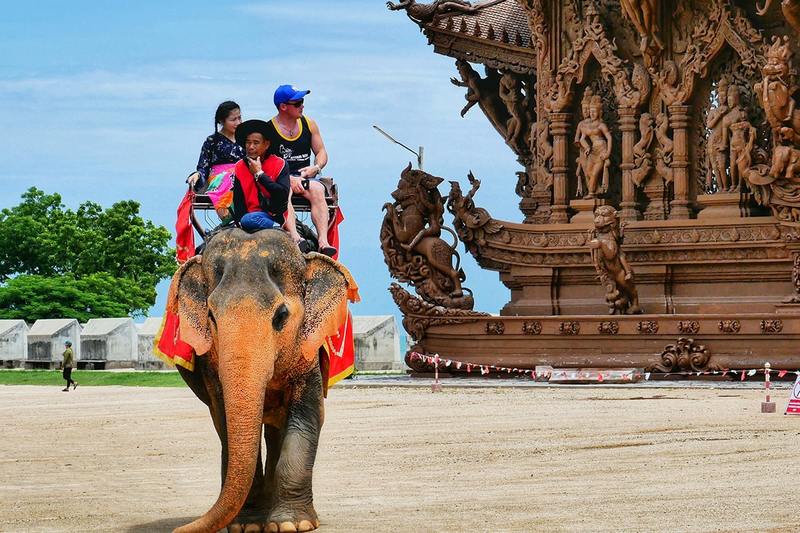
Go ethical. Make this a thing of the past
Ethical Responsibilities
Being able to get up close with these majestic and highly intelligent animals is a very moving experience and the thought of what they have been subjected to as mere babies in order to ‘tame’ them becomes even more shocking. To witness the pleasure they take in one another’s company, their sense of playfulness and love is quite astonishing given their often horrific personal histories. We all have a responsibility to act ethically and make the right choices in life for the sake our planet’s future, and a visit to one of these sanctuaries offers financial and moral support and is a very positive step in the right direction.










of collaborative energy




Before proceeding to use the website please carefully ready our Terms and Policies
I accept Diwerent's Terms and Conditions and Privacy Policy








